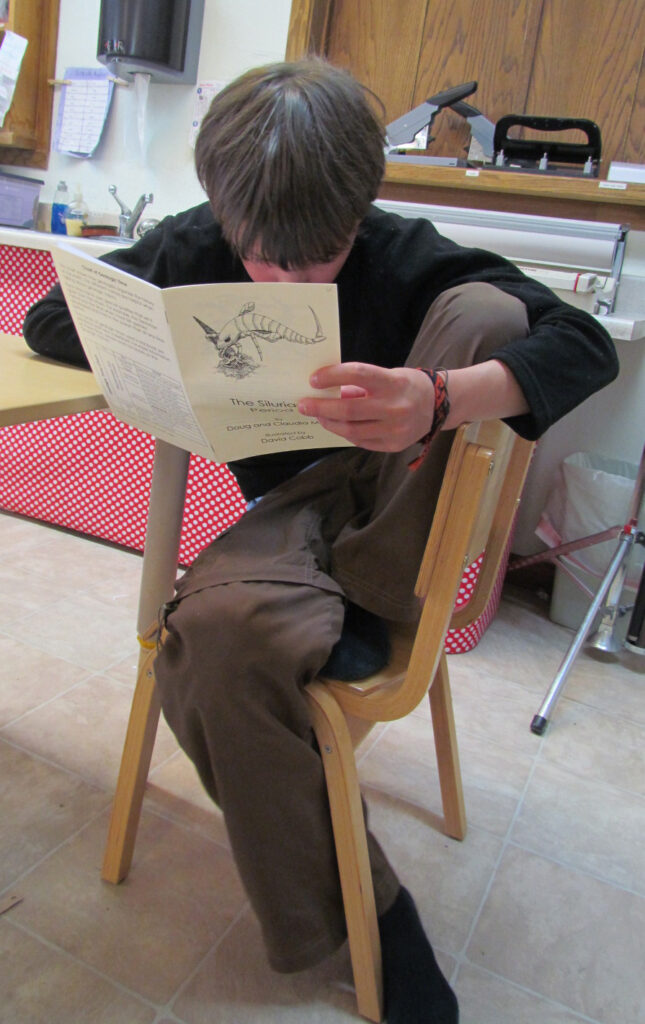This is the fifth article in the series: Key Ingredients for a Learning-Inspired “Classroom” at Home or in School
"The vision of the teacher should be at once precise like that of the scientist, and spiritual like that of the saint. The preparation for science and the preparation for sanctity should form a new soul, for the attitude of the teacher should be at once positive, scientific and spiritual."
(Dr. Maria Montessori,' The Advanced Montessori Method - I, Clio Press Ltd, 107)
Mindfulness and Montessori seem to go hand in hand. Dr. Montessori’s prolific writing on education and peace reminds us to infuse awareness, attention, thoughtfulness and respect into every corner of our daily activity. So it should come as no surprise that mindfulness practices have found their way into the lives of Montessori teachers, classrooms, and children.
Everyday routines inspire and instill peaceful practices. Take respect, for example. In my classroom the rules were minimal: Respect Yourself, Respect the Environment, Respect Each Other. These three seemed to pretty much cover all possible applications of the concept, while providing the fodder for discussions about the meaning, the purpose, and the “doing” of respect.
Yet to be truly “respectful” requires mindfulness: a thoughtful awareness that can only come through one of our key practices: observation. Dr. Montessori continues her explanation of the Montessori teacher’s vision with these words:
"Positive and scientific, because she has an exact task to perform, and it is necessary that she should put herself into immediate relation with the truth by means of rigorous observation…"
(Dr. Maria Montessori, The Advanced Montessori Method - I, Clio Press Ltd, 107)

As mindful observers seeking truth, we strive to watch like a scientist. We give presentations (our experiments), we watch, make notes, alter the controls, watch again, and again…always seeking truth. To be mindful is to be open to all possibilities of interpretation. While seeking truth we must also watch our prejudices. In scientific observation there is both a requirement for judgment and a mandate to beware of it. A conclusion reached too soon may lead us down an erroneous path, further complicating or damaging a relationship or a child’s potential.
Dr. Montessori wrote and spoke often of the secret the child held within her, the spirit of the little human that might be revealed. How do we work against the possibility of an error in assessment? How can we remain mindful so that our judgments do not negatively influence the unfolding of the child before us? The answer is the practice of meditative observation.
"Spiritual, because it is to man that his powers of observation are to be applied, and because the characteristics of the creature who is to be his particular subject of observation are spiritual."
(Dr. Maria Montessori, The Advanced Montessori Method - I, Clio Press Ltd, 107)
This is meditation as in quiet, contemplative reflection. Quiet mind. Quiet heart. Without the chatter of thoughts acquired through personal experience, another’s teaching, or an erroneous perception. This is the quiet that allows us to step out of our preconceived notions so we may focus on the child and her secret. As too-busy adults, we can rush to judgment in our observation, forgetting that precision requires wonder, patience, and a desire to discover what is not obvious; to see what lies hidden behind the easily seen. This is the spiritual side of our observational practice.
With her words, Montessori urges us to become the vision of the teacher she imagined possible. We practice the art of observation, striving for scientific precision and saintly inspiration. We practice not to achieve mastery, but to become more skillful in seeing the secret the child holds within.
Yet there’s more in it for the adult who practices observation. In mindful, meditative observation lies a precious gift for that observer. Dr. Montessori understood that observation, the fundamental practice of her method, allowed the adult to discover more than the secrets of the child. The dance between observer and observed reveals the adult’s true spirit as well. Observation is the key to discovery of the new soul waiting within each of us who are guided to this life-altering work.




